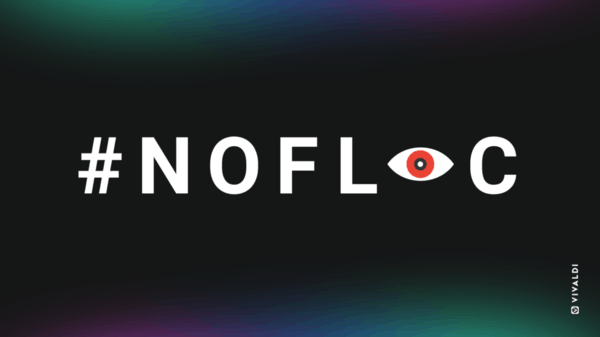Not so long ago, Google announced its plans to replace traditional cookies in your browser with something called FLoC. FLoC stands for Federated Learning of Cohorts and, in theory, should enhance users' privacy by reducing the amount of data advertisers get, and making it harder to create a unique ID for each user.

Currently third-party cookies can be used to generate a unique ID for a person. With FLoC, Google wants to eliminate this ability with cohorts - groups of users who share the same interests. Although at a glance Google's intentions look good, security experts and privacy advocates question FLoC. The problem is that a website will get your FLoC group ID from the very first time you open it, and learn everything about your preferences and habits right away. Besides, every FLoC group consists of 1000 users only, so the browser fingerprinting technologies get even more data to track visitors.
Advertisеment
Several companies have already announced their plans to fight FLoC. Developers behind the Vivaldi and Brave browser recently said they would block FLoC by default.
"FLoC off!" says Vivaldi in its official blog.
We will not support the FLoC API and plan to disable it, no matter how it is implemented. It does not protect the privacy and it certainly is not beneficial to users, to unwittingly give away their privacy for the financial gain of Google.
Brave developers uttered similar concerns:
FLoC is a recent Google proposal that would have your browser share your browsing behavior and interests by default with every site and advertiser with which you interact. Brave opposes FLoC, along with any other feature designed to share information about you and your interests without your fully informed consent. To protect Brave users, Brave has removed FLoC in the Nightly version of both Brave for desktop and Android.
In the future, every Chromium-based browser will support FLoC by default unless developers choose to opt-out. Federated Learning of Cohorts currently goes through limited testing in several countries outside the GDPR jurisdiction. It requires communication between the browser and Google's servers, plus some additional technologies within Chrome. Despite sharing the same rendering engine, Vivaldi and Brave have no intention to support FLoC APIs.
You can read more about Vivaldi's stand on FLoC on its official website. A similar post from Brave is available here.
Support us
Winaero greatly relies on your support. You can help the site keep bringing you interesting and useful content and software by using these options:

Good decision there! I am happy being stuck with Vivaldi. Sergey, could be post articles on Brave browser too please? Looks like a happening browser as well.
We will consider expanding our coverage.